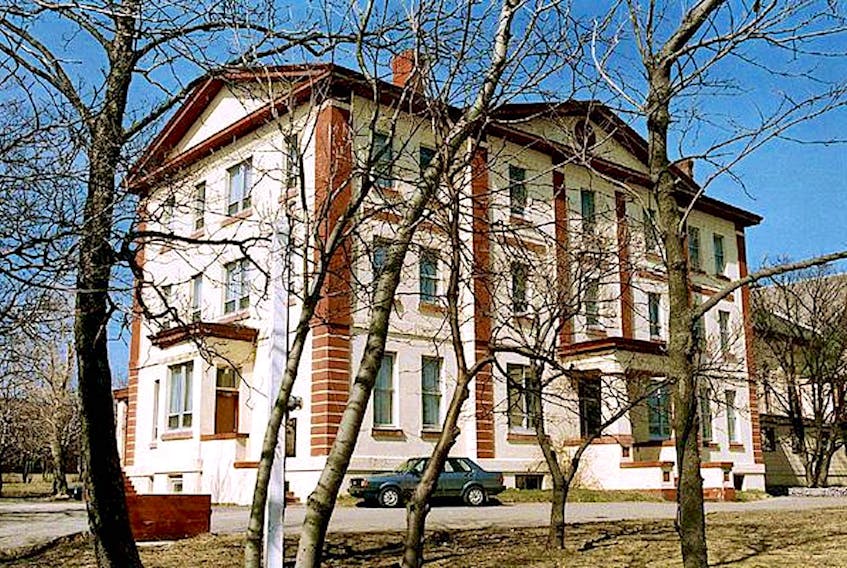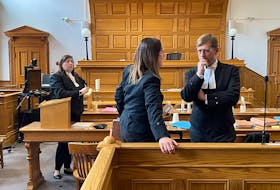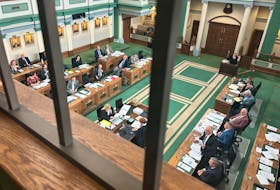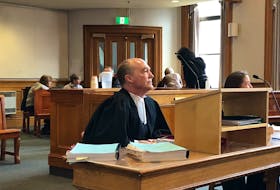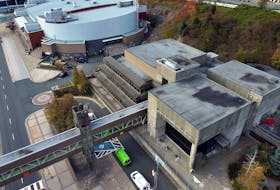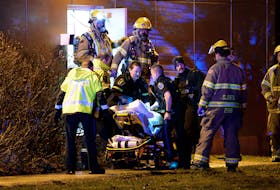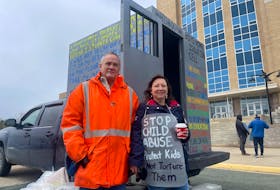ST. JOHN'S, N.L. — The Newfoundland and Labrador Court of Appeal has unanimously ruled that the Roman Catholic Episcopal Corp. of St. John’s is liable for the sexual abuse suffered by orphans at the hands of Christian Brothers at the former Mount Cashel orphanage in St. John’s in the 1950s and 1960s.
The Roman Catholic Episcopal Corp. is the legal entity of the Archdiocese of St. John’s.
The decision means the archdiocese is liable to pay damages to the victims.
“In our view, the total relationship between the Brothers at Mount Cashel and the archdiocese shows that the Brothers were working on the account of the Archdiocese’s social and religious mandate,” the decision reads.
“Their relationship was sufficiently close, and the connection between the Brothers’ assigned tasks and their wrongdoing was sufficiently close, to justify the imposition of vicarious liability on the archdiocese.
“In our view, the total relationship between the (Christan) Brothers at Mount Cashel and the archdiocese shows that the Brothers were working on the account of the Archdiocese’s social and religious mandate. Their relationship was sufficiently close, and the connection between the Brothers’ assigned tasks and their wrongdoing was sufficiently close, to justify the imposition of vicarious liability on the archdiocese." — Newfoundland and Labrador Court of Appeal
“In the result, we allow the appeal respecting the archdiocese’s vicarious liability for the conduct of the five Mount Cashel Brothers who sexually assaulted the appellants, and accordingly impose vicarious liability on the Archdiocese for the wrongful conduct of the Brothers.”
Reversal of 2018 decision by the provincial Supreme Court
St. John’s lawyer Geoff Budden, whose firm represents the abuse survivors involved in the case, said the appeals court decision is a reversal of a March 2018 decision of the Newfoundland and Labrador Supreme Court general division, which denied such liability.
“The Court of Appeal addresses a number of the findings with which the (victims) were disappointed following the trial, resulting in a robust and thorough decision which we believe accurately captures the state of the law in Canada with respect to vicarious liability for survivors of sexual abuse,” Budden said.
While not all of their grounds of appeal were successful, Budden said, “the most significant portion of the judgment for our clients was the reversal of the learned trial judge’s findings with respect to the vicarious liability of the (St. John’s) archdiocese for the conduct of the Christian Brothers.”
Archdiocese has 60 days to apply to appeal to Supreme Court of Canada
Toronto lawyer Mark Frederick, who led the legal team for the archdiocese in the case, said in an email Wednesday morning the team was analyzing the lengthy decision and discussing it with their client.
The archdiocese has 60 days to decide if it will apply to the Supreme Court of Canada to seek leave to appeal the decision.
Later Wednesday morning, the Archdiocese of St. John’s emailed a statement to The Telegram.
“While the Archdiocese of St. John’s was never responsible for the operations of the orphanage or the school at Mount Cashel, we have immense sympathy for those who suffered in the past and continue to suffer, as a result of abuse,” the statement reads. “We ask for prayers for all those involved in this sad matter. We continue to move forward, focused on our daily work of building God’s kingdom through service, word and worship.”
The case has been ongoing since December 1999, when a lawsuit was filed by four former residents (representative of about 60 former residents whose legal prospects are also directly affected by the case) of the orphanage whose names are protected by a publication ban.
The suit was filed against the Roman Catholic Episcopal Corp. of St. John’s (Archdiocese) and the Christian Brothers Institute Inc. for damages resulting from the sexual abuse they suffered while they were boys living at the Mount Cashel Orphanage in St. John’s in the 1950s.

Since the lawsuit was filed — seeking millions in financial compensation — the victims had received partial payment of their claims against the Christian Brothers after bankruptcy proceedings in the United States resulted in liquidation of that organization’s assets.
A trial in the case was held over approximately 35 days in 2016.
During the trial, the archdiocese did not dispute that the Christian Brothers had abused the victims. The archdiocese did, however, dispute that it was negligent or that it was vicariously liable for the Brothers’ actions.
In a written judgment following the trial, filed March 16, 2018, the trial judge dismissed the plaintiffs’ claims against the archdiocese.
The archdiocese's legal team issued a statement on March 20, 2018: “The two-month trial of four representative claimants occurred in the spring of 2016, with an additional 60 or so claimants awaiting the outcome. In its comprehensive 174-page ruling, the court accepted the defence approach of utilizing historical contextual evidence to show that the Christian Brothers, an independent religious order that operated the orphanage, did so separately and apart from the archdiocese, and that the archdiocese, though supporting the orphanage establishment and assisting with funding and other charitable support, was ultimately not responsible for any torts taking place under Church canon law, or civil law.”
The victims launched an appeal of that decision, resulting in this week’s ruling by the Newfoundland and Labrador Court of Appeal, which overturned lower court’s decision.
The Court of Appeal’s decision — by Court of Appeal Chief Justice Deborah Fry, Justice Lois Hoegg and Justice Francis O'Brien — states, “…there was a strong connection between the risk of harm the archdiocese introduced in the community and the materialization of that risk. The archdiocese exercised its authority over the Brothers and the orphanage in many ways, but it also provided the Brothers staffing Mount Cashel with the power, environment and tools to carry out their wrongdoing virtually undetected, while they were supposed to be carrying out the archdiocese’s legitimate objectives of caring for and educating the appellants.”
“Our clients do feel great relief. It’s been a lifetime ordeal ... They are all older gentlemen and they’ve all carried this with them, and while most of them have gone on to lead very successful lives, those lives have been haunted by this abuse. And the highest court in Newfoundland has said the abuse happened." — Geoff Budden
Budden said the victims have been waiting a long time for this day.
“This isn’t necessarily the end of the road — the highest court in our province has found liability, but the archdiocese still has the option, should they choose to, to attempt to appeal this to the Supreme Court of Canada,” he said.
“Our clients do feel great relief. It’s been a lifetime ordeal. These are men … some of them are over 80 … and some of this abuse happened 70 years ago. They are all older gentlemen and they’ve all carried this with them, and while most of them have gone on to lead very successful lives, those lives have been haunted by this abuse. And the highest court in Newfoundland has said the abuse happened — which the (Supreme Court general division) also accepted and which the archdiocese has admitted, and that the archdiocese is responsible to compensate them for that abuse.
“They certainly feel this was all they could have hoped for from the Court of Appeal.”
The Mount Cashel sexual abuse scandal is most widely associated with the abuse of boys of a different era — the 1970s and 1980s — the revelation of which prompted the 1989-90 Hughes Inquiry. That era was not part of this civil case, and the boys from earlier decades were not part of compensation from the provincial government when it settled a block of cases from the '70s and '80s more than 20 years ago.
The current case — four test-case John Does — represented more than 60 claimants from the era of the late 1940s to 1960s who believed the church should be held liable for the abuse they suffered at the hands of Christian Brothers. The decision could also affect the unresolved cases of about 20 other claimants represented by various lawyers.
Twitter: @StJohnsTelegram

